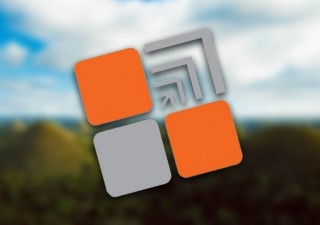Tolins Directors Imprisoned for Taking a False Stand in Court
14 August 2017

In many cases involving blatant counterfeiting or trademark infringement, it is not uncommon for defendants to falsely deny that they are engaged in the alleged activities, especially when the evidence collected by the plaintiff is not concrete.
To overcome this, most plaintiffs seek an Anton Piller order so that a local commissioner can visit the defendants’ premises without warning and collect evidence of the infringing activities.
In such cases where a defendant simply denies dealing in the spurious goods and the plaintiff does not succeed in acquiring good evidence to the contrary, courts are usually constrained to dispose of the suit on the basis of the defendant’s statement.
A situation of this nature arose in a case filed by Bridgestone Corporation to the Delhi High Court against a company called Tolins Tyres Pvt. Ltd.
According to Bridgestone’s sources, Tolins was manufacturing tyres under the mark “Bridestone” and exporting these to Nepal. The clandestine nature of Tolins’ activities, however, made it difficult to catch them red handed.
On the first date that the suit was listed, Bridgestone relied on publicly available export data which indicated that “Bridestone” tyres were exported to Nepal on certain dates. While this export data did not expressly mention that these “Bridestone” tyres were being exported by Tolins, it was sufficient for the grant of an ex-parte interim injunction restraining Tolins from dealing in “Bridestone” products and the appointment a local commissioner to visit Tolins’ premises and ascertain whether they were engaged in the alleged activities.
Owing to the clandestine nature of Tolins’ activities, the local commissioner did not find any “Bridestone”-branded products at their premises. However while going through Tolins’ books of accounts, the local commissioner found several invoices with details of tyres exported by Tolins to Nepal. These invoices did not indicate that the tyres were being exported under the “Bridestone” brand, but the quantities and dates of these exports corresponded with the publicly available export data for “Bridestone” tyres.
Tolins were under the impression that the commission had failed and, upon entering the proceedings and filing their written statement, staunchly denied having ever dealt in any products under the “Bridestone” mark.
The court appreciated the fact that Tolins’ accounts had entries for tyres being exported to Nepal which corresponded with the “Bridestone” export data available to the public. However, in the absence of more concrete evidence directly tying Tolins to these exports, the court was inclined to dispose of the suit against Tolins’ undertaking that they had not dealt in ”Bridestone” products and will not deal in such products.
Bridgestone was determined that Tolins should not go scot-free for their infringing activities. Armed with the details of Tolins’ exports to Nepal, Bridgestone proceeded to conduct fresh enquiries at the land customs port where Tolins’ tyres were exported. This paid off as the customs officials confirmed that the “Bridestone” tyres exported to Nepal were in fact Tolins’. The customs officials however could not share documents evidencing this without a court order.
When the court was updated on these findings, Tolins was asked once again whether they would like to come clean and admit that they are dealing in the impugned “Bridestone” tyres. Tolins maintained their position and repeated that they have never dealt in any “Bridestone” products.
Accordingly, the court passed a Norwich Pharmacal order directing a third party, i.e. the customs officials, to produce Tolins’ export documents. Two of Tolins’ directors, including the company’s managing director K.V. Tolin, were directed to be personally present in court.
As expected, the customs records established that Tolins has been exporting “Bridestone” tyres to Nepal in large quantities. When confronted with these records, Tolins’ directors finally admitted their wrongdoings and attempted to tender an apology to the court.
The court was of the view that the apology was meaningless in the circumstances, and directed that Tolins’ directors be taken to jail at the local police station for the night and produced in court the next morning to show why contempt proceedings should not be initiated.
The following day, after having spent the night in jail, Tolins’ directors sought an opportunity to settle the matter. The suit was finally decreed with a permanent injunction restraining Tolins from using the “Bridestone” mark. In addition, Tolins paid Bridgestone Rs3 million (US$46,500) towards compensation and deposited additional Rs500,000 (US$7,750) with the Delhi Legal Services Authority for taking a false stand in court.
This case highlights the importance and admissibility of data which can be verified by a public authority. It is a testament to how effective a Norwich Pharmacal order can prove.








